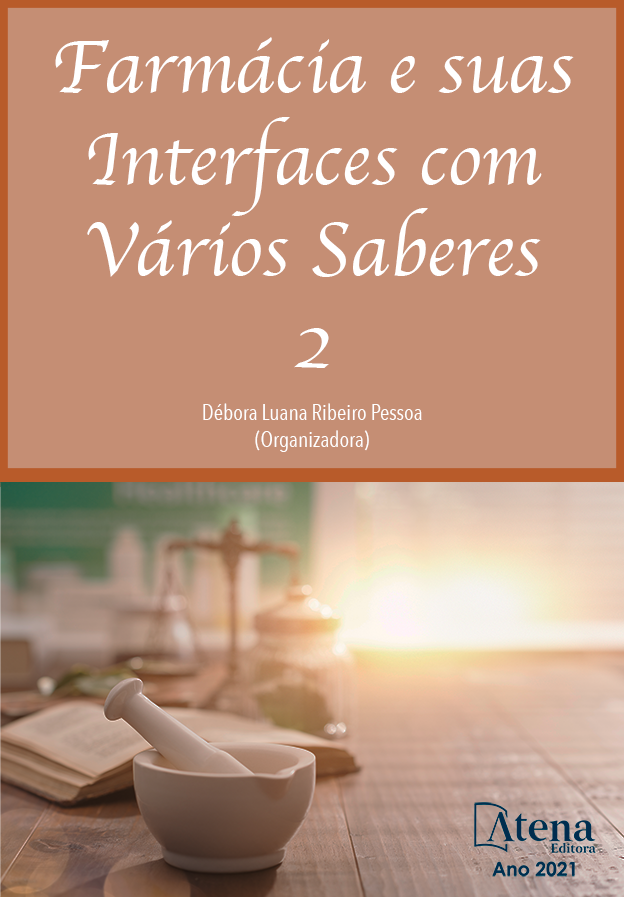
IMPACTO DA COMPLEXIDADE DA FARMACOTERAPIA NA ADESÃO AO TRATAMENTO DA ASMA GRAVE E DPOC GRAVE
Doenças respiratórias crônicas representam 5,8% do total de mortes no Brasil. A via de escolha para tratamento de doenças respiratórias como a asma e a DPOC é a via inalatória. A complexidade da farmacoterapia é um fator que pode dificultar a adesão ao tratamento. O objetivo do trabalho foi avaliar o impacto da complexidade da farmacoterapia na adesão ao tratamento de pacientes portadores de asma grave e DPOC. Para avaliar a adesão foi utilizado o instrumento validado e traduzido para o português, o Brief Medication Questionnaire. A complexidade da farmacoterapia foi mensurada por meio da versão traduzida e validada para o português do Medication Regimen Complexity Index. Foram atendidos 40 pacientes com média de idade de 67,48 (± 7,38) anos, variando de 52 a 85 anos. Apenas dois pacientes foram considerados aderentes, 80% apresentaram barreiras de regime de medicação, 42,5% barreiras de crenças e 75% barreiras de recordação. A complexidade da farmacoterapia variou de 5 (farmacoterapia menos complexa) a 61 (farmacoterapia mais complexa), com média de 27,86 (± 14,68). Houve correlação positiva e significativa (r = 0,91; p > 0,0001) entre o número de medicamentos prescritos e a complexidade da farmacoterapia e também em relação ao número de diagnósticos (r = 0,53; p = 0,0005). Comparando, por meio do teste de Kruskal-Wallis, a média de complexidade das farmacoterapia dos pacientes conforme as diferentes classificações da adesão (aderentes x potencialmente aderentes x potencialmente não aderentes x não aderentes) também foi observada diferença significativa (p = 0,0370), demonstrando que quanto maior a complexidade da farmacoterapia menor a adesão. Este estudo representa um dos poucos que avaliaram a adesão a farmacoterapia dos pacientes atendidos no componente especializado da assistência farmacêutica, por meio de instrumentos validados para mensurar a adesão e a complexidade de uma farmacoterapia.
IMPACTO DA COMPLEXIDADE DA FARMACOTERAPIA NA ADESÃO AO TRATAMENTO DA ASMA GRAVE E DPOC GRAVE
-
DOI: 10.22533/at.ed.81421120614
-
Palavras-chave: Adesão à Medicação, Asma, DPOC, Índice de Complexidade da Farmacoterapia, Medicamentos do Componente Especializado da Assistência Farmacêutica
-
Keywords: Medication Adherence; Asthma; COPD; Medication Regimen Complexity Index; Drugs from the Specialized Component of Pharmaceutical Care.
-
Abstract:
Chronic respiratory diseases represent 5.8% of the total deaths in Brazil. The route of choice for the treatment of respiratory diseases such as asthma and COPD is the inhalation route. The complexity of pharmacotherapy is a factor that can hinder treatment adherence. The aim of the study was to assess the impact of the complexity of pharmacotherapy on adherence to treatment of patients with severe asthma and COPD. To assess adherence, the instrument validated and translated into Portuguese, the Brief Medication Questionnaire, was used. The complexity of pharmacotherapy was measured using the translated and validated Portuguese version of the Medication Regimen Complexity Index. Forty patients with a mean age of 67.48 (± 7.38) years, ranging from 52 to 85 years, were seen. Only two patients were considered adherent, 80% had medication regimen barriers, 42.5% belief barriers and 75% recall barriers. The complexity of pharmacotherapy ranged from 5 (less complex pharmacotherapy) to 61 (more complex pharmacotherapy), with an average of 27.86 (± 14.68). There was a positive and significant correlation (r = 0.91; p> 0.0001) between the number of drugs prescribed and the complexity of pharmacotherapy and also in relation to the number of diagnoses (r = 0.53; p = 0.0005). Comparing, through the Kruskal-Wallis test, the mean complexity of the patients' pharmacotherapy according to the different adherence classifications (adherent x potentially adherent x potentially non adherent x non adherent), a significant difference was also observed (p = 0.0370) , demonstrating that the greater the complexity of pharmacotherapy, the lower the adherence. This study represents one of the few that evaluated the adherence to pharmacotherapy of patients seen in the specialized component of pharmaceutical assistance, using validated instruments to measure adherence and the complexity of a pharmacotherapy.
-
Número de páginas: 13
- Uriel Oliveira Massula Carvalho de Mello
- Kauê Cezar Justo
- Antônio Marcos Honorato
- Erica Freire Vasconcelos-Pereira
- Cristiane Munaretto Ferreira
- Vanessa Marcon de Oliveira
- Maria Tereza Ferreira Duenhas Monreal
- Mônica Cristina Toffoli-Kadri
- Vanessa Terezinha Gubert


